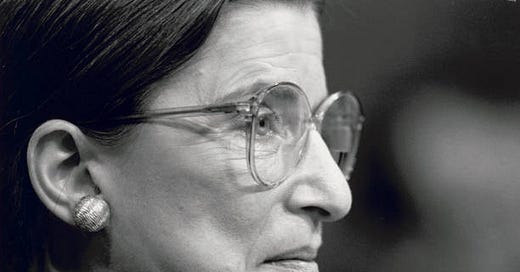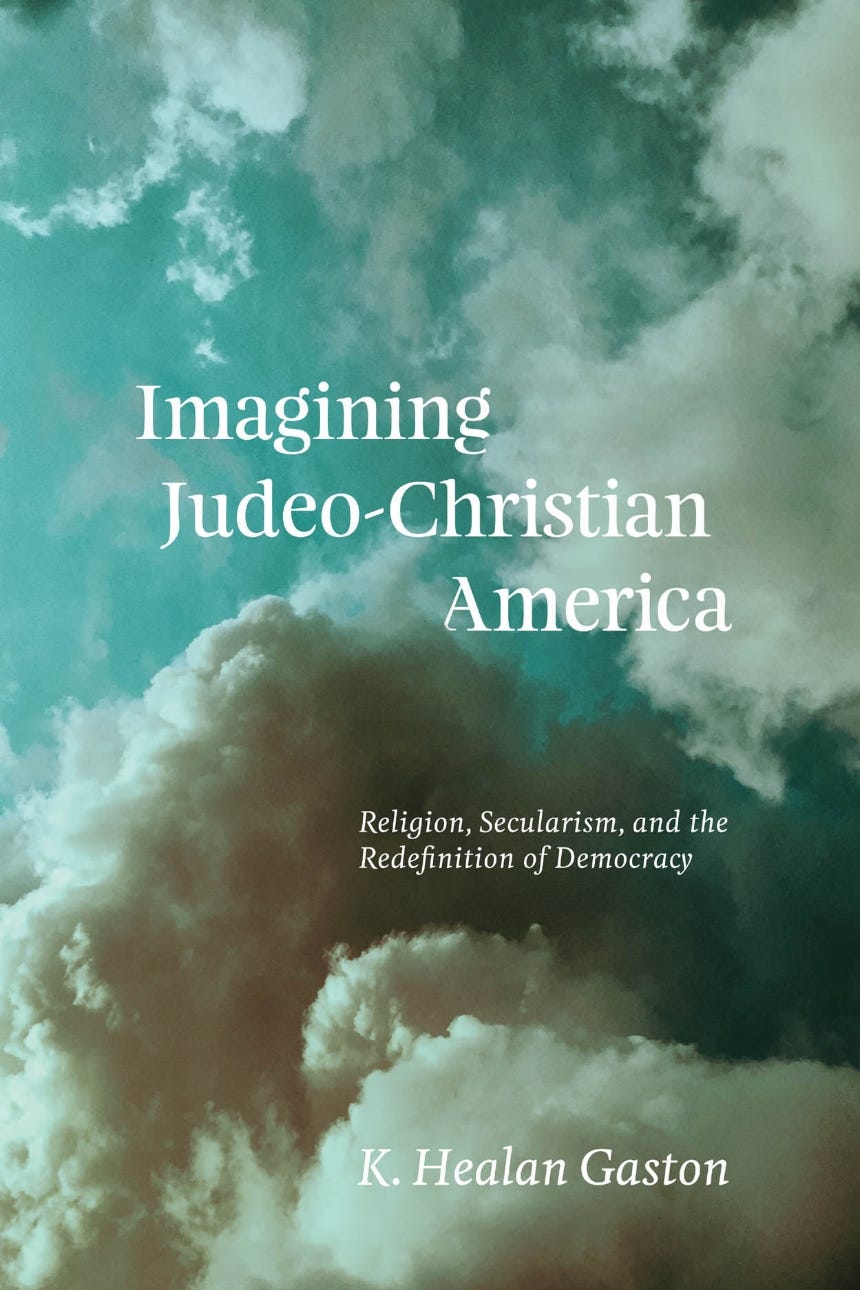Dispatch #7: Into Autumn
We’re happy to have you with us :)
As we shift into cooler weather, we figured the newsletter deserved a new sweater too— with our new logo designed by the very talented Katalina Martinez! This month we have a reflection on the Jewish high holidays, religious perspectives on current Haitian migration, and more. Enjoy!
“The Jewish high holidays are a time of communal accountability, confession, and reflection. We tap our fists to our hearts: We have trespassed. We have betrayed. We have stolen. We have slandered. We toss crumbs of bread into the river to represent the new slate we are starting. We think back on the past year, and where we can make amends.
I always get nostalgic and reflective around the high holidays – the liturgy requires it. Where have I not lived up to my values in the past year? To whom do I owe penance? What can I do better in the coming year?
It is during this time of annual communal reflection that rabbis give their sermons. The stakes are high: If there is one day of the year that even a non-observant Jew goes to services, it’s the Day of Atonement. When I gave a Yom Kippur sermon at my alma mater in 2018, I spoke ahead of the midterm elections with grave solemnity about what the book of Jonah could teach us about our political moment. I expect such guidance, even calls to action, from my religious leaders. Any less is an abdication of responsibility.
There are certainly people who disagree with me. They say that the high holidays are a time for unity, for religious leaders to speak doctrinally but not dogmatically from the pulpit. There are plenty of other things to talk about other than the impending threat of climate disaster, the racism that plagues our society, or the Israeli state which, for better or for worse, acts in our name.
But the high holidays are a time for reflection. Plenty of things are divisive. But there’s a difference between being divisive and taking a stand. And if our actions are our legacy, then what better time of year is there to talk about politics?
That is my ask of my community during the high holidays: Don’t run from the hard stuff. Reflect on what divides us. Think on what needs to be done. Only then, with an openness of heart and generosity of spirit, can we act.”
-Maddie
In the News: Haitian Migration
Advocating for Haitians, faith groups pressure Biden to end Trump-era measure by Jack Jenkins, Religious News Service
“For many who make the trek to the border, he said, faith plays a key role. “Because of their trust in God, this is how they made the perilous trip through seven or eight different countries,” he said. “They went through jungles. They went through rivers. They walked at night. They spent many days without eating. So their faith basically took them there.”
Other worthwhile reads:
Letter signed by 164 Catholic organizations sent to President Biden urging the end of the use of Title 42 (September 26, 2021)
Letter authored by faith leaders across six faith traditions to President Biden (September 28, 2021)
Religious Profile Spotlight: Justice Ruth Bader Ginsburg
Having passed the first anniversary of Ruth Bader Ginsburg’s death, it feels an appropriate time to reflect upon this religious heritage and convictions of this icon. Ginsburg was raised in an observant Orthodox Jewish home in Brooklyn, regularly attending services throughout her youth. Following the death of her mother in 1949, however, her relationship to Judaism changed dramatically. As a woman, Ginsburg was unable to say a mourner’s prayer as part of a minyan (a Jewish quorum required for public prayer). In grief and indignation, she stopped attending Orthodox services completely.
This did not mean, however, she no longer maintained a relationship with Judaism. During a Rosh Hashanah service in 2017, Ginsburg characterized Judaism as “an ethical religion… that is, we are taught to do right, to love mercy, [and] do justice, not because there’s gonna be any reward in heaven or punishment in hell.” She spoke about her legal work as part of the pursuit of justice and effort towards tikkun olam, or repairing the world. Despite her rifts with some institutions within the Jewish tradition, Ginburgs unambiguously embraces her identity as a Jewish woman, saying,
“I am a judge, born, raised and proud of being a Jew. The demand for justice, for peace, for enlightenment runs through the entirety of Jewish history and Jewish tradition[.]”
Ginsburg passed away in her home on September 18, 2020, on the first day of Rosh Hashanah. As synthesized by Rabbi Danya Ruttenberg, some Talmudic interpretations posit that a death on this High Holy Day signifies the end of a uniquely righteous life. Rabbi Ruttenberg mourns the loss of a woman who worked “tirelessly” towards justice and equality until her final days and also pushes us to remember Ginsburg by continuing her work through righteous action,
“The books are open, and so many lives and fates are getting written now. Help us to seal them in goodness.”
Book Recommendation: Imagining Judeo-Christian America
“For those interested in American pluralism, the language of Judeo-Christianity often feels passe at best, harmful at worst. In addition to its supersessionist overtones and questionable historic validity, “Judeo-Christianity” limits American religious pluralism to specific groups. What can we learn, then, from when this idea first came into the main stream of American life? What can its evolution tell us about pluralism then and now? And how can we use that knowledge to expand the boundaries of American pluralism?
Healan Gaston’s Imagining Judeo-Christian America examines the evolution of Judeo-Christian discourse in the United States. She shows how this language has always been contested and exclusionary. Further, she illustrates its connection to anti-communist and later anti-progressive causes. As someone who believes pluralism should be expansive – and include groups that might fall out of our language of ‘religion’ – this work is a compelling exploration of how one idea of pluralism has evolved over time. Imagining Judeo-Christian America is an excellent place to start, or continue, looking into the challenges and drawbacks of any form of pluralist discourse.”
-Ben
Jobs Bulletin
National Social Justice Organizing Director - Repairers of the Breach
Associate Editor, Culture - Sojourners
Director of Organizing - Faith in New Jersey
Reproductive Access Campaign Director - National Council of Jewish Women
LA RED Director (Immigrant Rights) - Faith in Action
Director of Research - Faith in Action
Climate Equity Coordinator - Faith in Action





